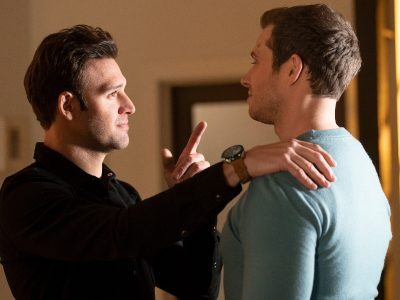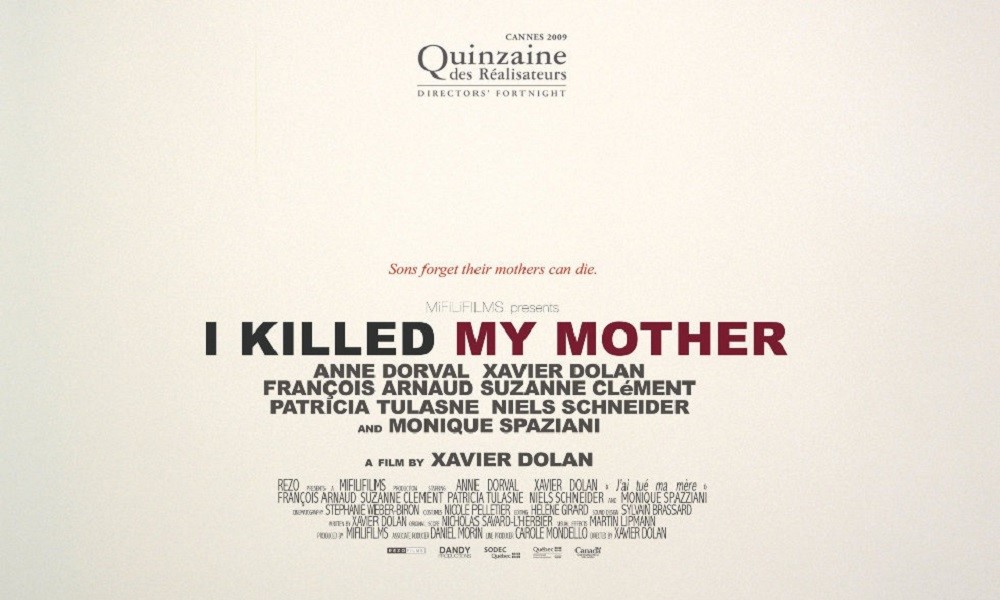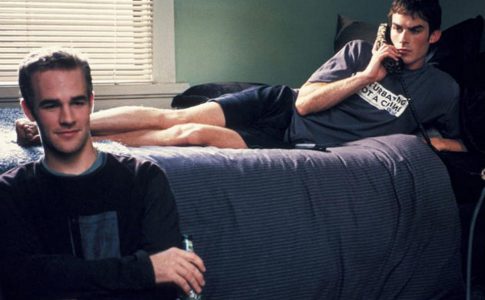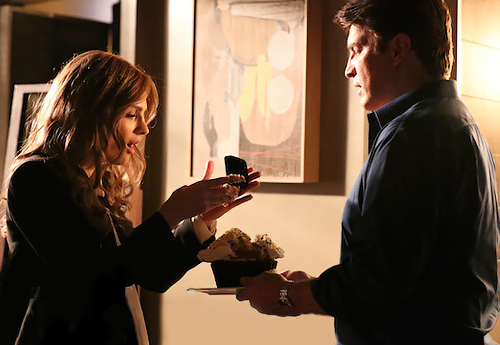I Killed My Mother – Movie Review
I Killed My Mother (French: J’ai tué ma mère) is a 2009 Canadian drama film written, directed, produced by and starring Xavier Dolan, in his directorial debut. Loosely autobiographical, it follows the complicated relationship between a young man (Dolan) and his mother (Anne Dorval).
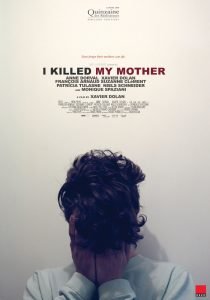
The following recap and review contains spoilers so proceed with caution if you have not seen the movie.
The film begins with Hubert Minel (Xavier Dolan) giving a black-and-white monologue explaining how he loves his mother but cannot stand being her son; he also reveals that when he was younger, things were better between them.
Hubert is a 16-year-old Québécois living in suburban Montreal with his single mother, Chantale (Anne Dorval), who divorced Hubert’s father, Richard (Pierre Chagnon), when Hubert was much younger. Hubert barely sees his father, and this adds to the animosity between mother and son. One morning, as his mother drives him to school, Hubert starts an argument with her which ends when Chantale stops the car and tells him to walk to school. At school Hubert claims to his teacher, Ms Cloutier (Suzanne Clement), that his mother is dead. After the teacher finds out that it is a lie, she expresses this lie as “you killed your mother”. This inspires Hubert to write an essay for school titled “I killed my mother.”
Later in the film, Hubert’s friend Antonin (Francois Arnaud) is revealed to be his boyfriend, but Hubert has not told his mother. She finds out from Antonin’s mother (Patricia Tulasne), who assumed that Chantale already knew. Chantale, to some extent, accepts her son’s homosexuality; however, she appears hurt that he did not tell her. Hubert wants to live in his own apartment and is happy that his mother says it is a good idea, but the next day she has changed her mind and does not allow it, claiming that she thinks he is too young.
Their relationship continues to deteriorate, and Hubert goes to live with his teacher, pretending to be staying with his boyfriend. Hubert’s father invites him over for a visit; however, once there, Richard and Chantale tell Hubert they’ve decided to send him to a boarding school in Coaticook.
At the Catholic boarding school, Hubert meets Eric (Niels Schneider), with whom he has an affair. Eric invites Hubert to go to a nightclub with the other students, where they kiss and Hubert takes speed. He takes the Metro home, wakes his mother, and has an emotional conversation with her. The next morning, she takes Hubert to Antonin’s mother’s workplace to help drip the walls in paint. He and Antonin finish, and he lays down. Antonin proceeds to lay on top of him and kiss him, and they end up having sex. Hubert, later at home, trashes his mother’s bedroom, but he calms down and cleans it up. The two fight and, in the morning, she sends Hubert back to the boarding school.
Back at school, Hubert is beaten by two fellow students. Hubert runs away with the help of Antonin, who has borrowed his mother’s car. On the journey, Antonin tells Hubert that he is selfish and only cares about himself but adds that he loves him. The school’s principal (Benoit Gouin) calls Chantale to inform her of the developments, revealing the note Hubert left, saying he will be “In his kingdom”. The principal also begins to lecture Chantale, which causes her to have an angry outburst at him, saying how he thinks he’s better than her and how he has no right to judge a single mother. Chantale knows exactly where Hubert’s “kingdom” is; the house he lived in as a child with both his parents.
Indeed, she finds Hubert and Antonin there. Chantale sits next to Hubert overlooking the beach. The film ends with a home movie clip of Hubert as a child playing with his mother.
Review
I Killed My Mother is a film that deals with a number of complex issues that we can all relate to on some level. The most obvious of these are personal feelings towards immediate family members (especially between children and their parents, and more so following break-ups) and coming to terms with sexuality. The more underlying, and more deeply impactful, theme throughout the film is personal acceptance. The film takes you on a journey as Hubert learns more about himself and slowly starts to accept himself and how he fits in with others. These same self-discovery journeys are taken by Chantele and Antonin, too, as they learn to understand themselves, their behaviours, and learn to understand Hubert, too.
The film was a critical success, winning a number of awards including three at the Cannes Film Festival in 2009 (all for Xavier Dolan) and four at the Vancouver Film Critics Circle (three for Dolan, one for Francois Arnaud). The lasting impact of the film, ad the learning that comes from watching it, still have an impact today, and it’s a film that I’m certain can help many people come to terms with who they are, and learn that they, too, belong.
Why This Movie
One of the reasons for this review today is to take part in Celebrate Bisexuality Day, a very important day in the LGBTQ+ community. I feel that this film ties in for several reasons. The first, of course, being the content and themes throughout the film. The second, being that bisexuality has recently been highlighted by one of the primary cast members. Several days ago, Francois Arnaud revealed on his Instagram that he is bisexual, posting a series of very open and heartfelt notes on his Instagram story. The films lead actor, writer, director and producer, Xavier Dolan, is also openly gay.
The hope is that by posting this review, people will watch this film and take away lessons that may help them in the future. Take inspiration from the film, and those who worked so hard to make it, and find your truth. Life is a journey, and acceptance is the first major step.
Going Further
If you have any questions or would like to seek anonymous guidance regarding yourself and being a member of the LGBTQ+ community, here are a list of contact numbers, based on country, for you to reach out to.
United States of America: LGBT National help Centre – 888 843 4564 – https://www.glbthotline.org/
United Kingdom: Switchboard – 0300 330 0630 – https://switchboard.lgbt/
Canada: Queer Events – 1.800.268.9688 – https://www.queerevents.ca/resources/crisis-hotline-support/resources
Australia: Q Life – 1800 184 527 – https://qlife.org.au/
Republic of Ireland: Outhouse – (01) 873 4999 – https://www.outhouse.ie/
New Zealand: OUTLine NZ – 0800 688 5463 – https://outline.org.nz/
South Africa: Out – 012 430 3272 – https://www.out.org.za/
